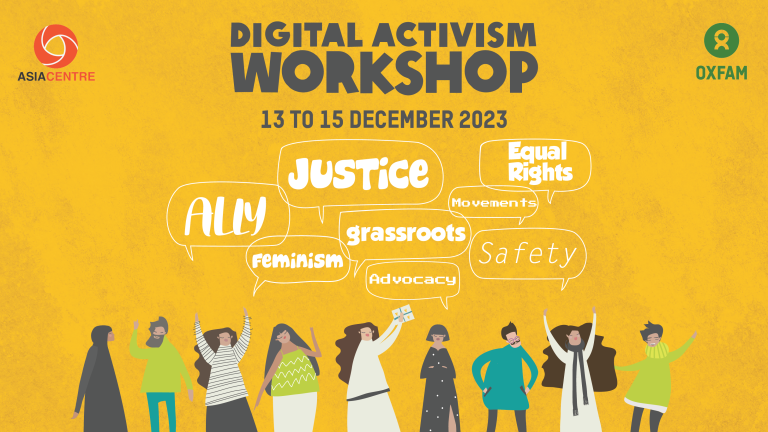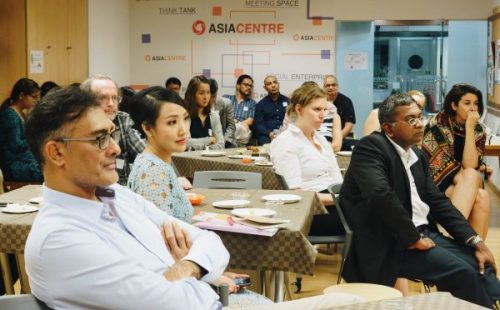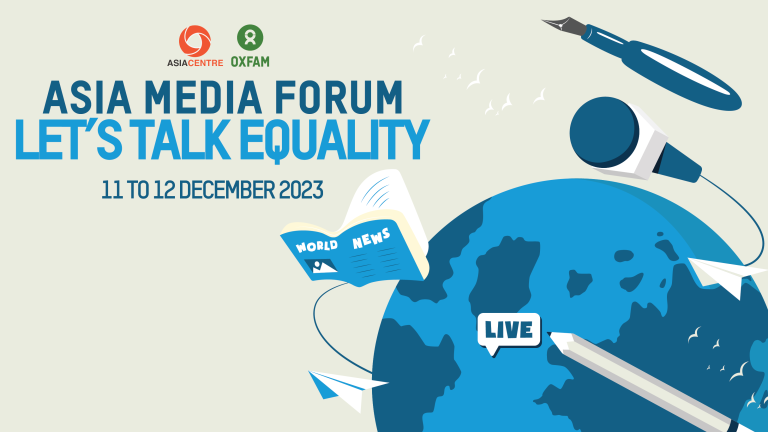
Highly restrictive laws have spurred self-censorship and the use of euphemisms in journalism. Meanwhile, business sustainability issues have forced media organisations to engage in advertorial and service-based revenue generation. Transformative changes and the ability to address these challenges, however, need to occur with multiple stakeholders, including the media and journalists.
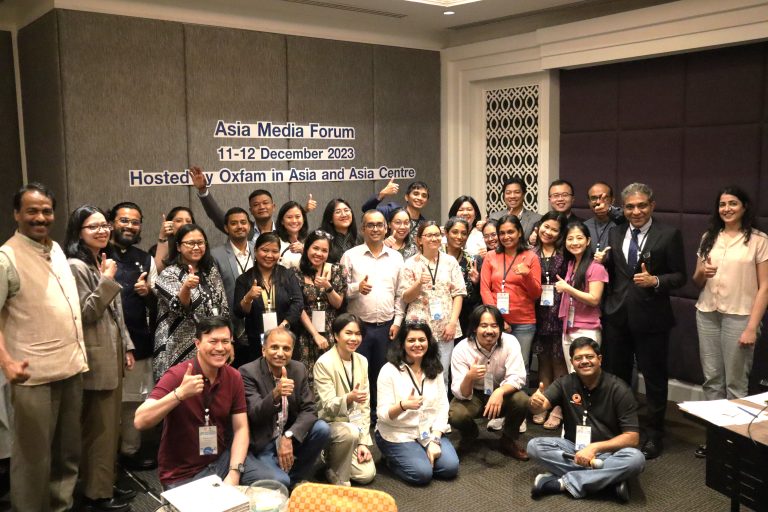
These and other challenges for news outlets and journalists in the Asian region were brought up by many participants at the “Asia Media Forum: Let’s Talk Equality” event held in Bangkok, Thailand on 11-12 December 2023.
The event was co-convened by Asia Centre and Oxfam in Asia and was attended by over 35 journalists, editors and communications specialists from Oxfam, national and regional media and publications. They came from Bangladesh, Cambodia, India, Indonesia, Laos, Myanmar, Nepal, Pakistan, the Philippines, Thailand, Timor-Leste and Vietnam. All of these media practitioners write on issues of human rights, equality and/or climate change.
The event’s welcome address was given by John Samuel, Oxfam in Asia Regional Director. Following this, Mustafa Talpur, Asia Regional Head of Advocacy & Campaigns presented an overview of Oxfam’s work. Thereafter, Dr James Gomez, Regional Director of Asia Centre, gave a presentation on the state of media freedom in the region.
Over the course of two days, the Forum highlighted challenges arising from shrinking space for media freedom, often impacted by governmental actions. One main issue was the increasing difficulty for news organisations to find loyal audiences and subscribers. Participants shared that the general public was not consuming news as much as before because of the unpleasantness of many current affairs issues such as wars, conflict and crime. This has been exacerbated by the unpleasantness of much of the news being broadcast or reported, and repeated frequently throughout news cycles.
Participants also noted that the general public’s trust in the media has decreased because of the proliferation of fake news, misinformation, and strong biases from some mainstream media, fringe websites and other content creators. Instead, audiences were moving towards entertainment and the types of “news” that lull readers or viewers into apathy and complacency regarding human rights issues and politics – a consensus shared by the diverse group of participants.
Further, when reporting on political news, journalists and news organisations run a high risk of being prosecuted through repressive laws in the longer term. The developments arising from a closing media space have led to widespread self-censorship among journalists and media organisations. Others rely on a heavy usage of euphemisms and indirect references in reporting as observed and even used by many of the participants attending the Forum.
Participants shared that the media companies they work for struggle to attract advertisements which have largely gone to online platforms. At the same time, media companies’ quest for subscribers has increasingly become an uphill challenge. As a result, advertorials are thus heavily adopted as the dominant business model. Some media organisations also now offer editorial services, training and other public relations services.
Journalists at the Forum said these developments impact journalistic integrity and remove certain issues such as climate change from editorial priority. Thus, there is scant attention being paid to it by most major news outlets, with few exceptions such as in Timor-Leste. The Forum participants lamented that this has led to climate issues being generally “unpopular” until massive environmental and climate disasters strike.
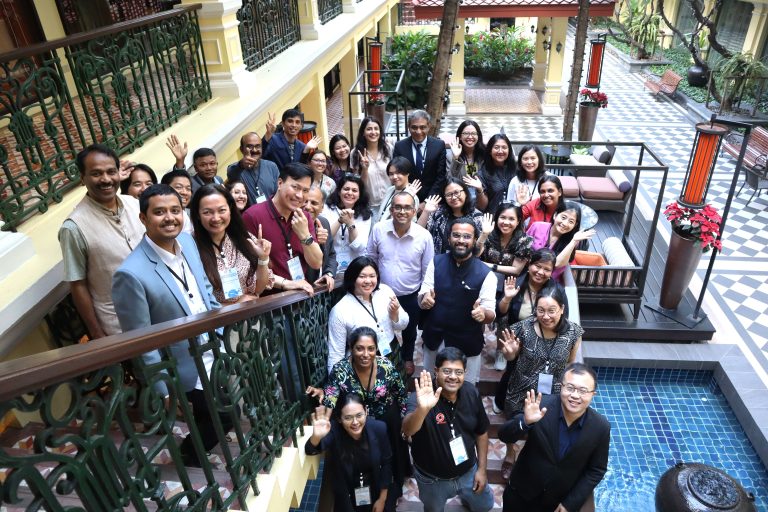
At the end of the two-day event, the participants agreed they had discussed the current issues affecting the media industry. They agreed to stay connected to formulate strategies for credible storytelling and ethical news reporting.
The Asia Media Forum is an event organised by Asia Centre in partnership with Oxfam in Asia . This media partnership started in 2019 with the Thailand launch of the Journalism for an Equitable Asia Award in Bangkok in November 2019. To learn more read the Award click here. For articles that covered the Award in the years 2020, 2021 and 2022, see here for 2019-2020, here for the 2020-2021 Award, and for the 2021-2022 Award here and here.
Asia Centre is a civil society research institute in Special Consultative Status with the United Nations Economic and Social Council. It serves as a knowledge partner and undertakes evidence-based research as well as provides capacity-building training for end beneficiaries. If you would like to collaborate with the Centre, please send an expression of interest to contact@asiacentre.org.



